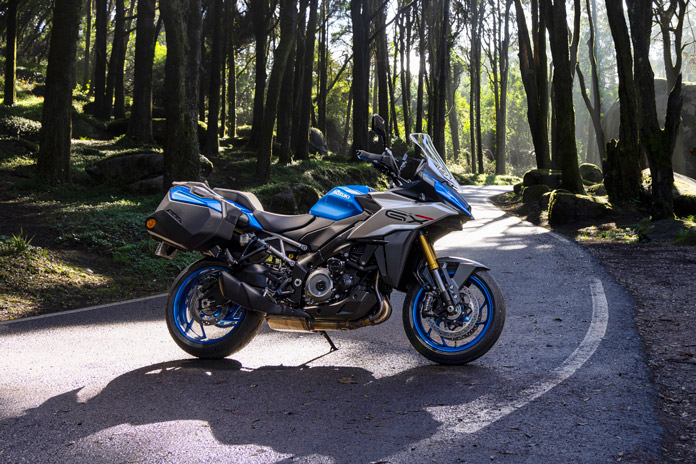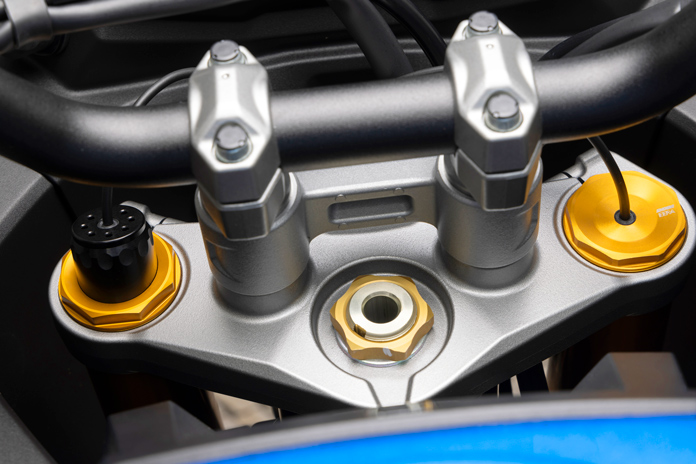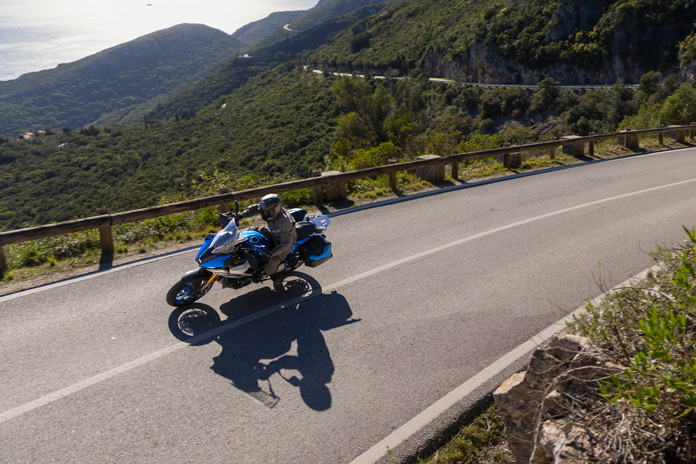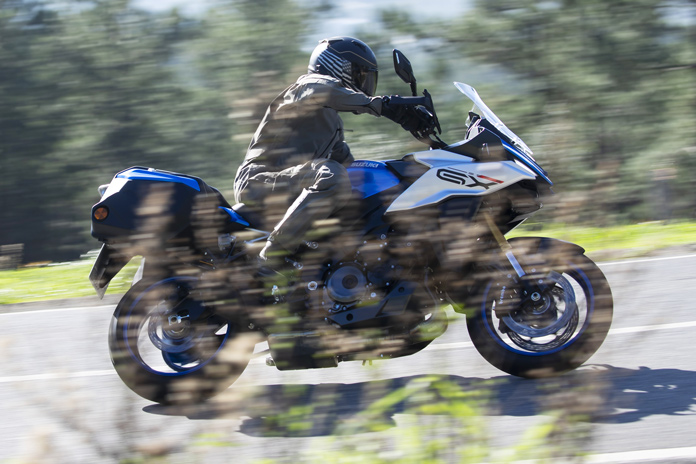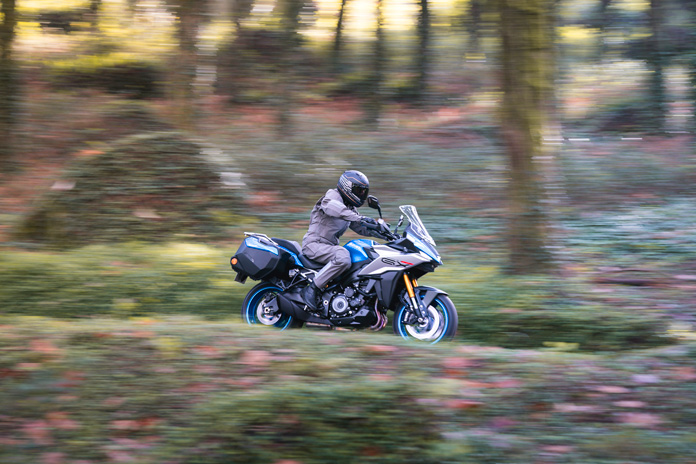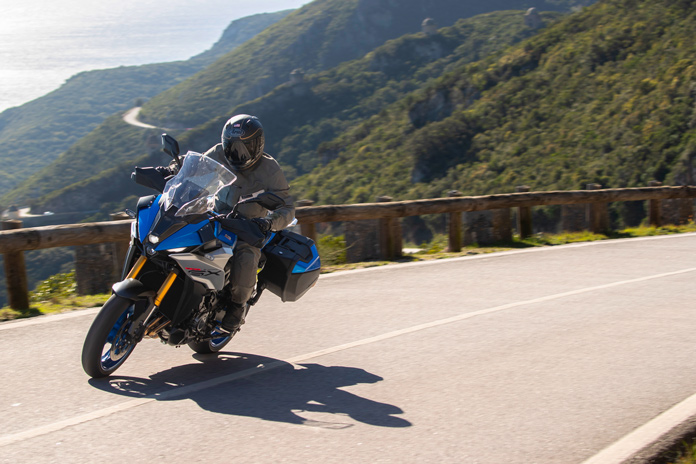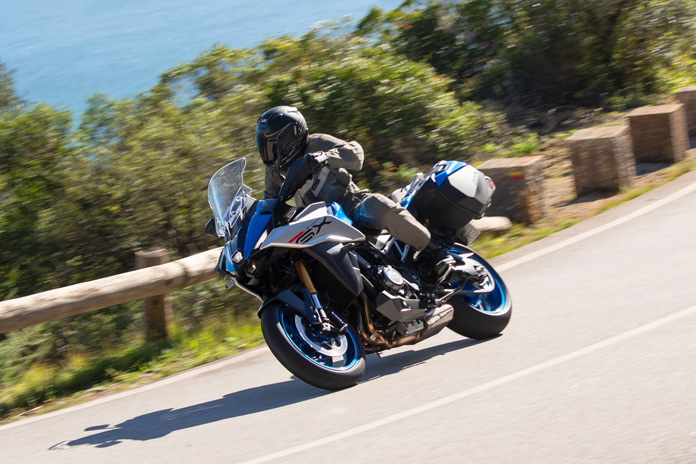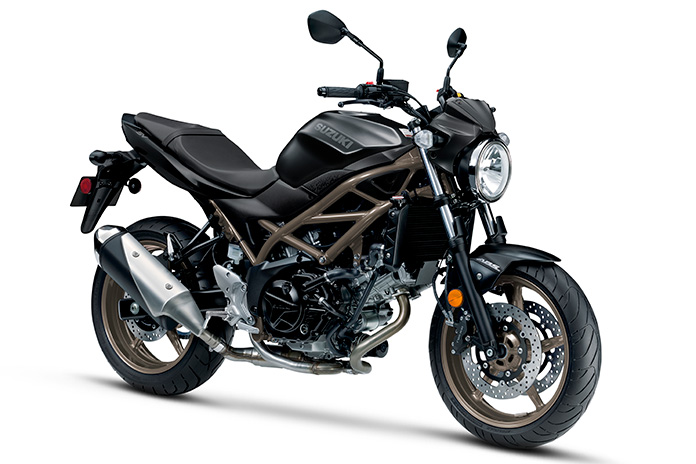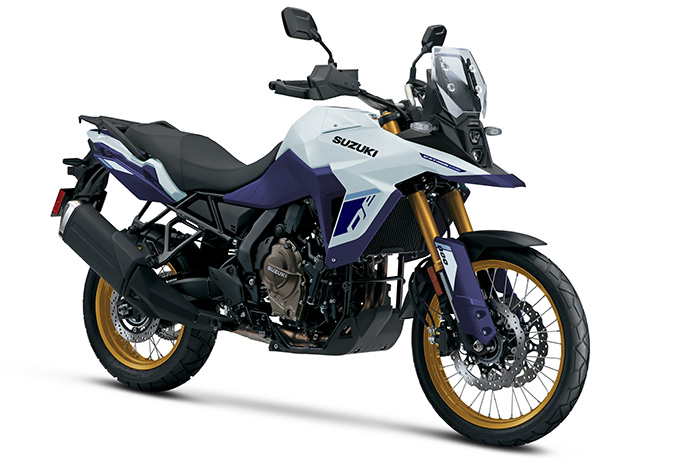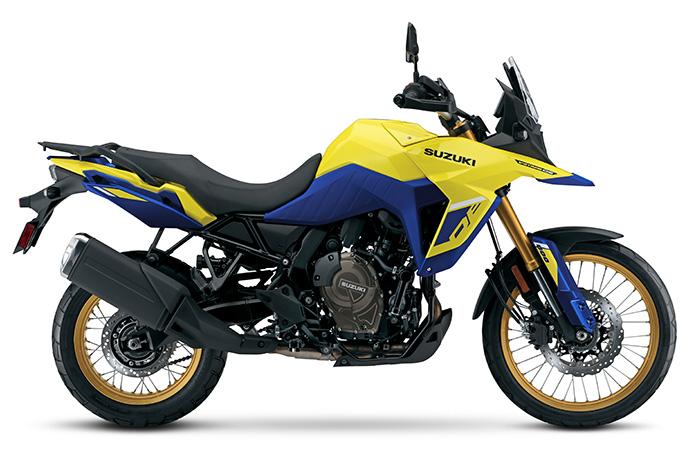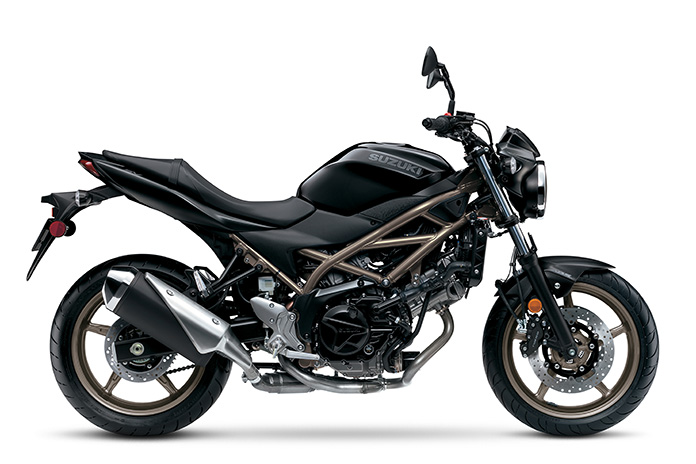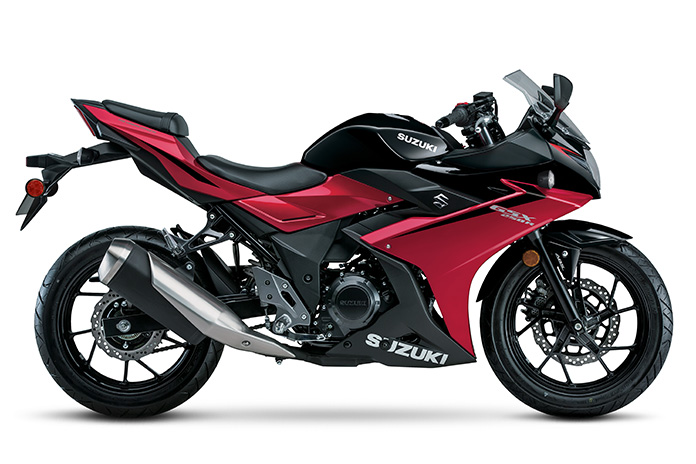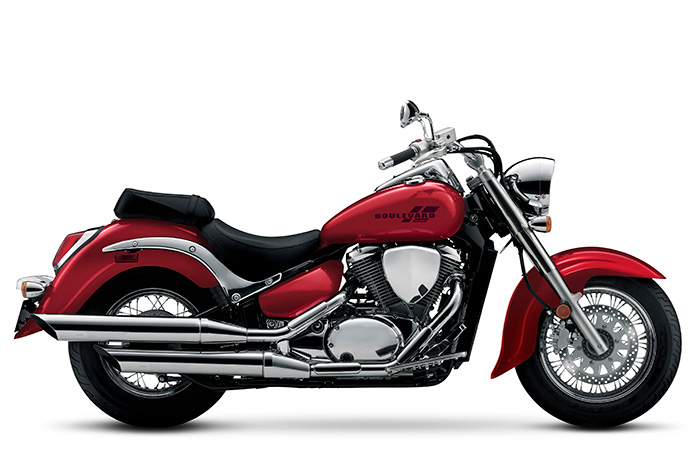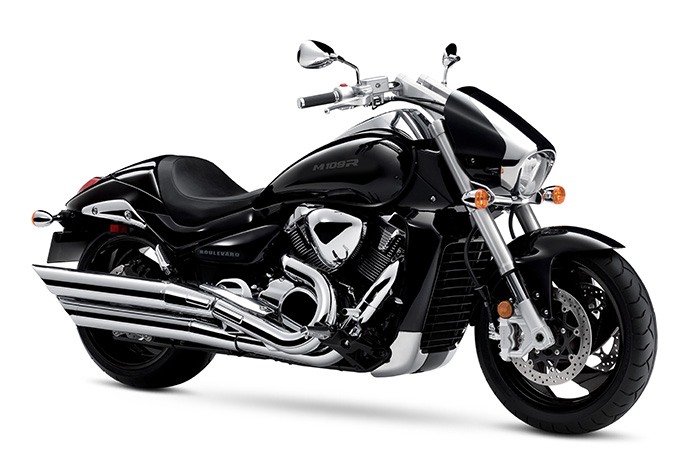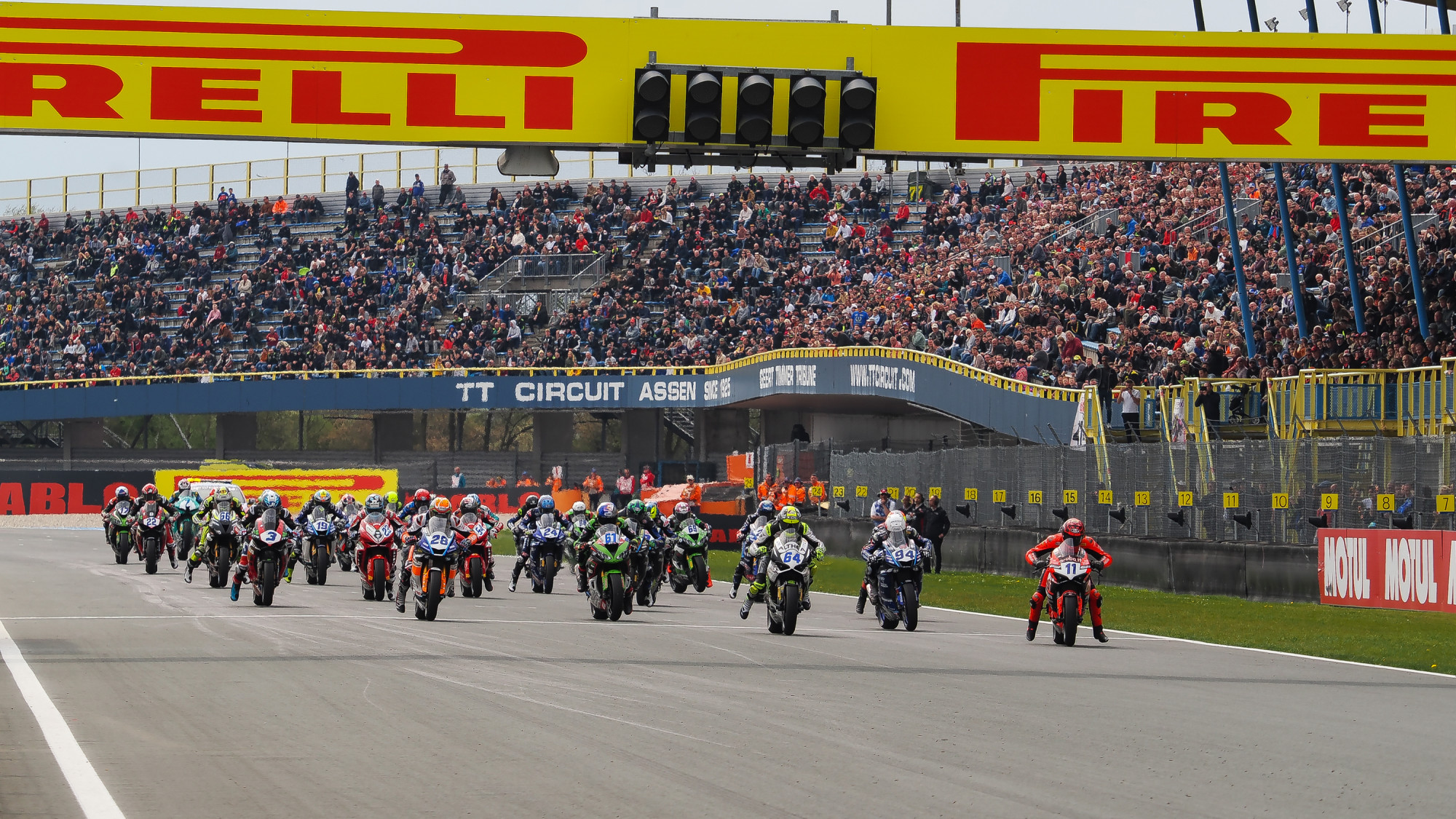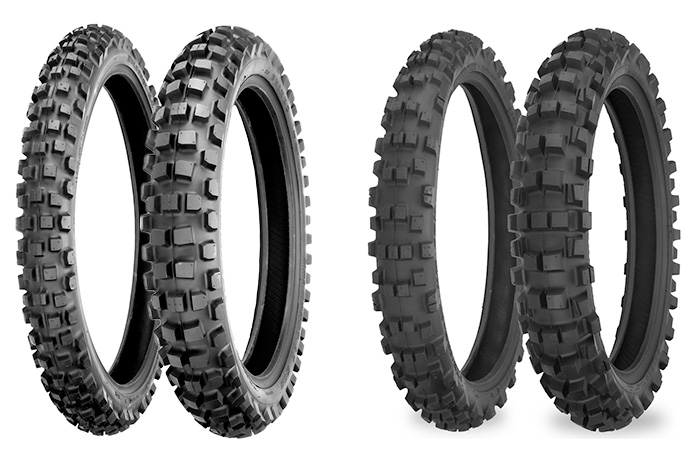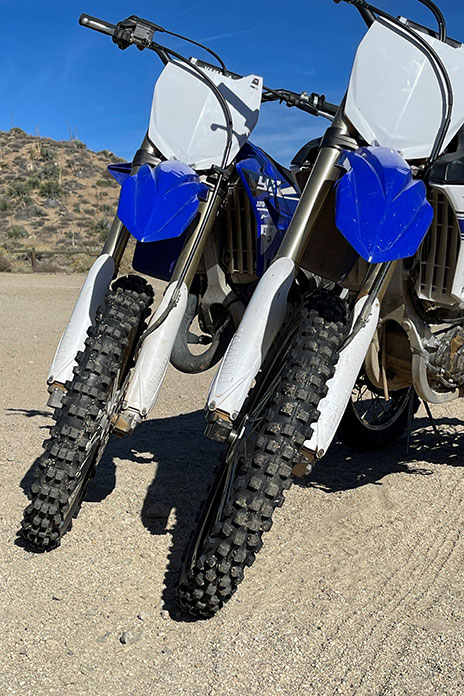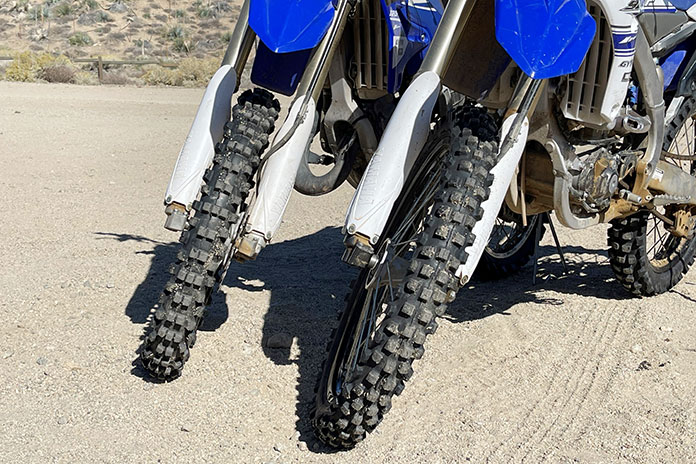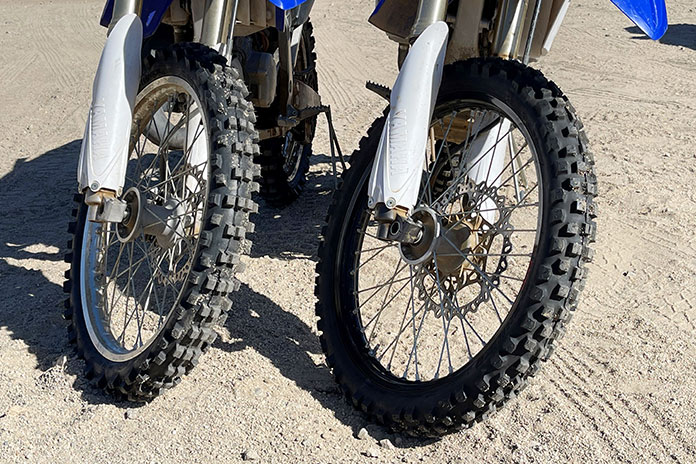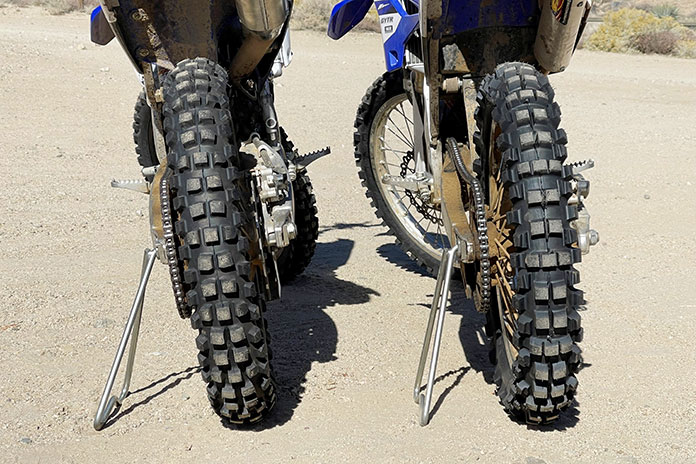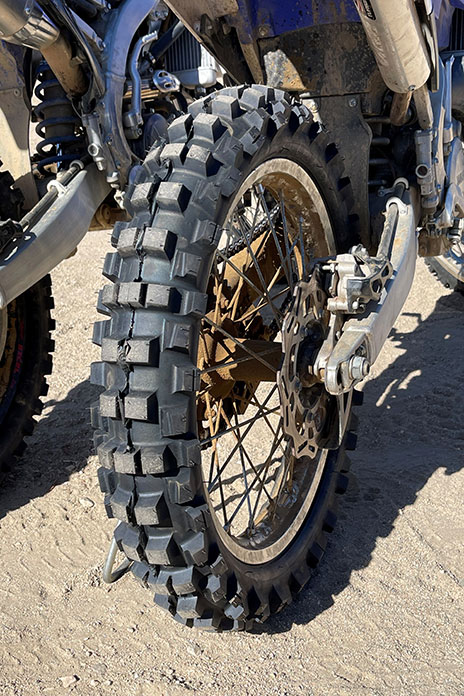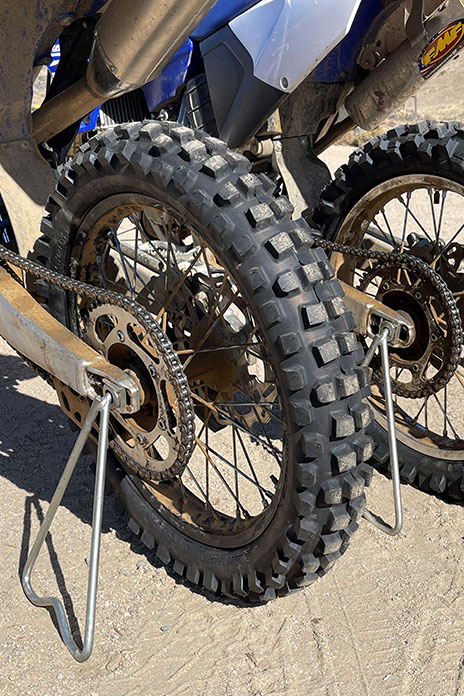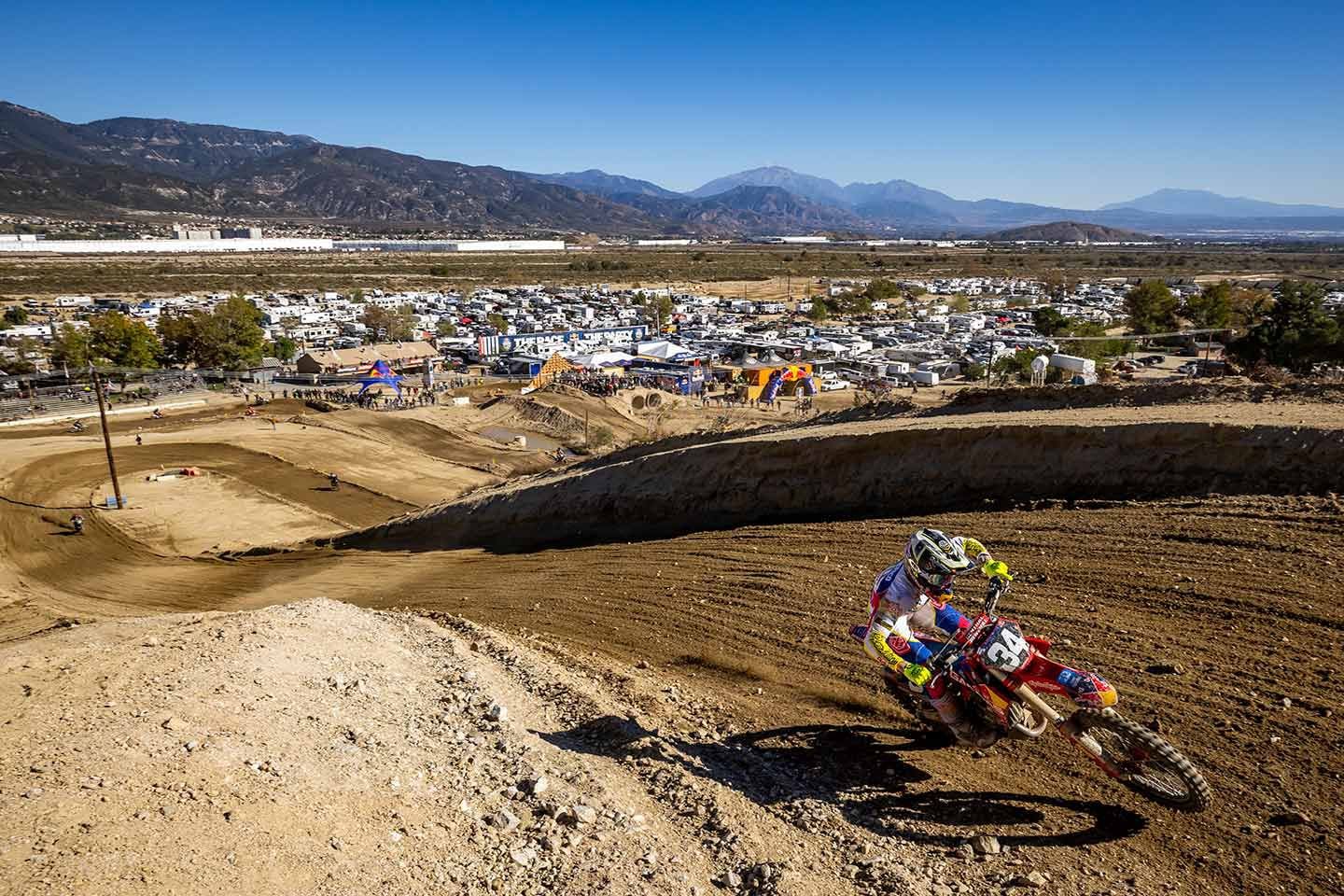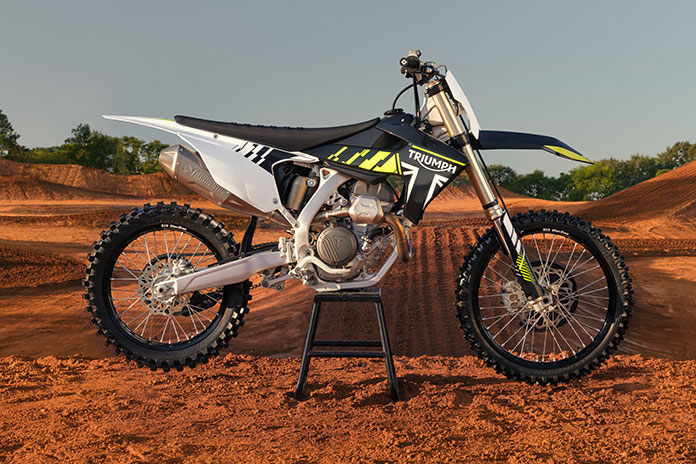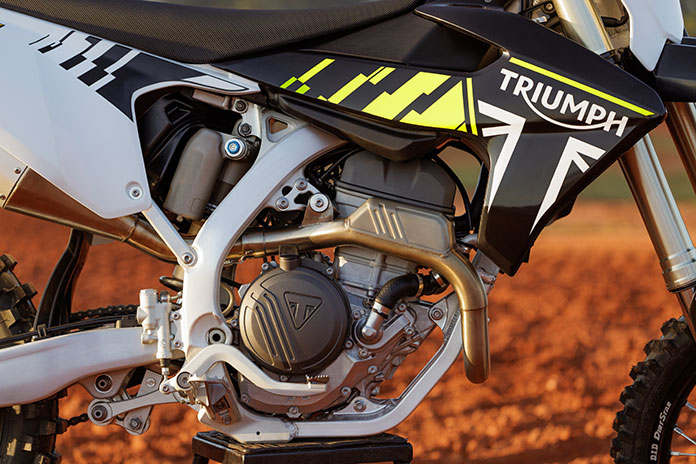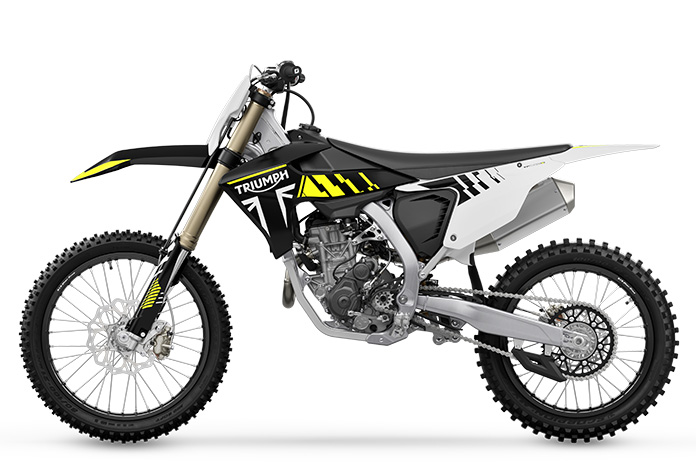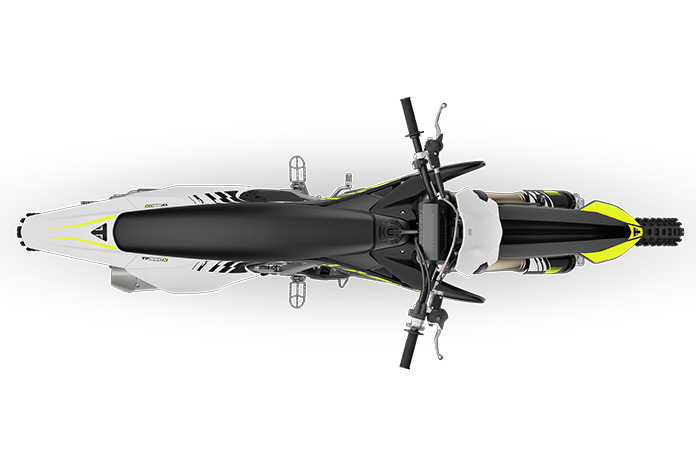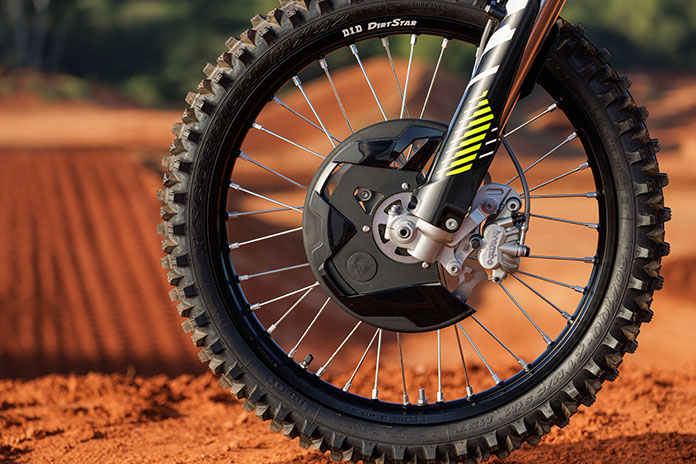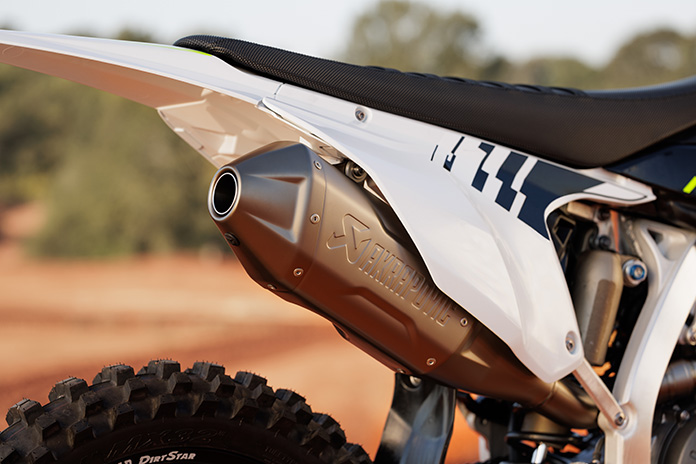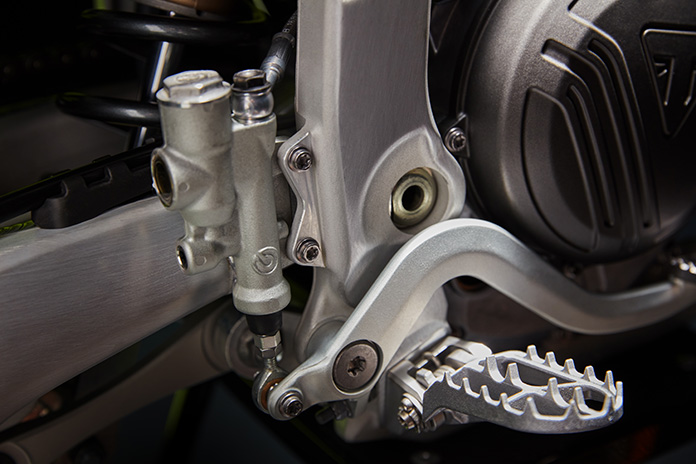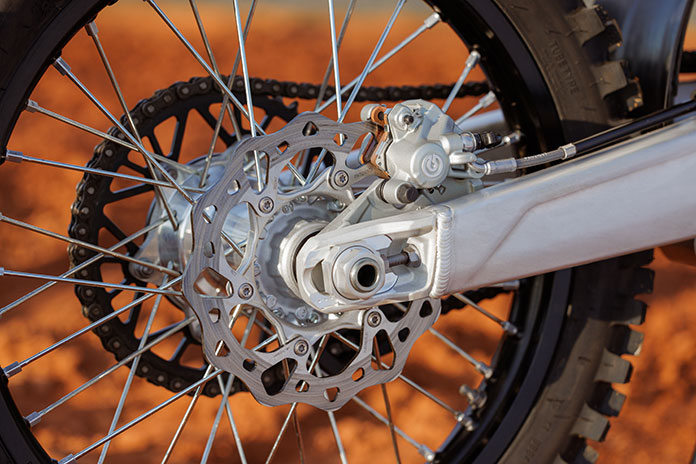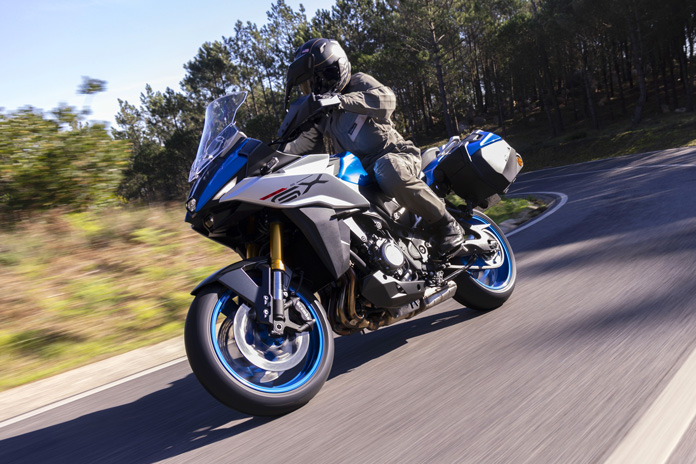
Suzuki’s new GSX-S1000GX+ is further evidence of the evolution in the sport-touring class. Formerly, the class consisted of big, heavy machines and sportier but less luxurious ones. Then came the influx of adventure bikes, which offered roomier riding positions and have become dominant in the marketplace.
The marketing materials for ADVs regularly show the bikes being ridden in desolate areas on unpaved terrain, inspiring our sense of adventure. However, ADVs are often used like crossover SUVs, with personas of rugged adventure but most often used on paved roads. So now we have crossovers that have spacious riding positions beyond what’s offered from traditional sport-tourers. Of note are BMW’s powerful S 1000 XR, Kawasaki’s capable Versys 1000 SE LT+, and our 2021 Motorcycle of the Year, Yamaha’s Tracer 9 GT, which was recently updated to the GT+.
Related: 2024 Yamaha Tracer 9 GT+ Review
Hot on the heels of Suzuki’s GSX-S1000GT+, our 2022 Motorcycle of the Year, is the new GX+ version that has a more open riding position, blending attributes of an ADV with a sport-tourer. Suzuki calls it the “supreme sport crossover.”
Related: 2022 Suzuki GSX-S1000GT+ Review
GT To GX | 2024 Suzuki GSX-S1000GX+
Suzuki didn’t have to start from scratch to create the GSX-S1000GX+. In a nutshell, the GX is a GT with a longer-travel suspension that automatically adjusts damping settings based on IMU-informed electronics. It has 1.2 inches more fork travel relative to the GT and 0.8 inches extra shock stroke – both just 0.4 inch less than the V-Strom 1050 adventure bike. Add in some new bodywork and a stronger subframe, and you’ve got the GX.
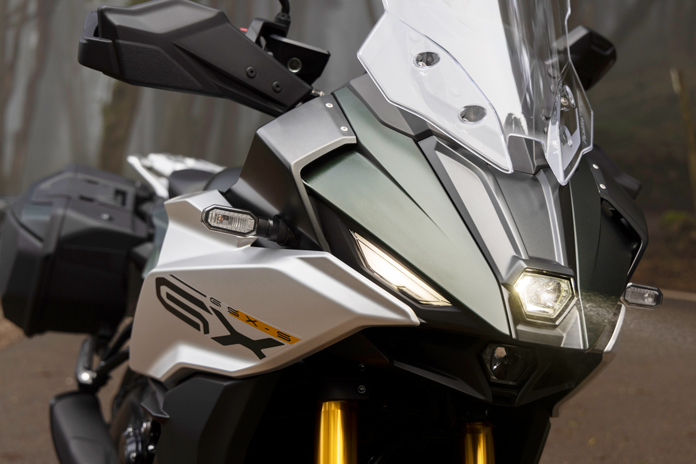
The GT+ is the version of the GSX-S1000GT with hardshell saddlebags ideal for touring. Suzuki will offer a base GX in some markets, but only the GX+ version will be available on our shores. It includes saddlebags and a centerstand as standard equipment.
The GX further sets itself apart from the GT by the addition of a 6-axis Inertial Measurement Unit, which informs all the electronic systems of the bike’s acceleration, braking, and lean angles. The IMU not only allows for cornering ABS and advanced traction control, it’s also the key ingredient in Suzuki Advanced Electronic Suspension, the company’s first semi-active suspension.
SAES automatically adjusts damping rates depending on road conditions and how aggressively the bike is ridden, and riders can tailor it to their preferences by selecting Hard, Medium, and Soft modes or by customizing settings in a User mode. Moreover, the system also automatically adjusts rear preload via an electric motor to suit various loads of rider and luggage.
“These technologies,” says Suzuki, “combine to make the GX comfortable and controllable on various road surfaces, ranging from urban asphalt and cobblestones to paved country and twisted winding mountain roads while also providing an engaging and sporty riding experience.”
Sounds good, right? Not a lot of cobblestones on our shores, so Suzuki sent us off to Portugal for a riveting riding experience on its new GX.
Revved Up | 2024 Suzuki GSX-S1000GX+
The GX’s cockpit is familiar to anyone who has straddled the GT, with the same user-friendly switches that navigate the various electronic settings on the 6.5-inch color TFT instrument panel. Happily, the TFT screen is mounted much higher than it is on the GT, which makes it far easier to see and use. Smartphone connectivity is enabled with Suzuki’s mySPIN app and can display maps, phone calls, and music.
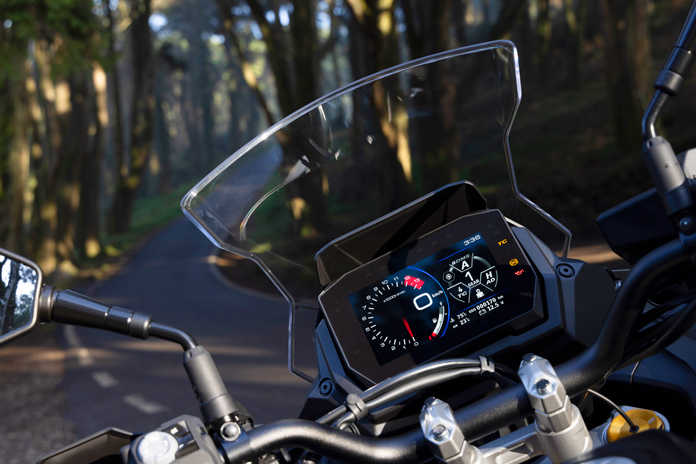
The longer travel suspension of the GX bumps the seat height to 33.3 inches, 1.4 inches taller than the GT. However, the seat’s narrow front section gives legs a straight shot to the ground and wasn’t a problem for my 30-inch inseam.
At the heart of the GX is the revered K5 GSX-R1000 engine that has a bottomless well of power and an arm-ripping 150 hp up top. The 999cc inline-Four originally powered the 2005-2008 Gixxers, and Suzuki says more than 180,000 of the bulletproof K5 mills have been produced in various guises over the years. Suzuki claims 70% of max torque is available from just 3,000 rpm, with peak twist of 78 lb-ft arriving at 9,250 rpm.
While the K5 has old roots, it remains a stellar powerplant, firing up with a guttural rumble that can willingly shriek to 11,750 rpm when you’re in a hurry. Throttle response is perfectly smooth in the B ride mode but still acceptable in A mode, albeit sharper. Clutch actuation is exceedingly linear, and pulling away from stops is aided by Suzuki’s Low-RPM Assist System that automatically increases engine speed as the clutch lever is released.
Kudos to Suzuki for producing one of the most seamless transmissions on the market, with a bi-directional quickshifter that fluidly swaps gears up and down without the rider needing to touch the clutch lever. A feint stab on the shifter automatically matches revs to the lower gear with a smoothness few riders can match manually. This updated system can also shift gears without interrupting the cruise-control speed setting.
The riding position of the GX is quite agreeable, with the handlebar 1.7 inches closer to the rider and 1.5 inches taller than the GT’s sportier crouch. The seat-to-peg distance expands by 0.6 inch, but legroom remains more cramped than most ADVs.
Gear Up
- Helmet: Arai Signet X
- Suit: Aerostich Roadcrafter
- Gloves: Alpinestars GPX V2
- Boots: Alpinestars Soho
The GX’s seat isn’t as comfortable as we’d expect from a touring bike. The forward section is too narrow for long-range support, so it’s best to sit as far rearward as arms will allow. The solution is the Premium seat from Suzuki’s accessory catalog, which proved to be much more supportive. The $399.95 saddle uses double-layer padding, and its upper section has heat-shedding material to avoid toasted buns after sitting in the sun. It’s not only far more comfortable, its red stitching and tuck-and-roll surface look sharp. And the included passenger section is highlighted by a snazzy GSX-S logo. If you have short legs, opt for the accessory low seat ($175) which is narrower and 0.6 inch closer to the ground.
The GX exhibits neutral steering, tipping into corners gracefully if not quickly. It’s a lightweight sport-tourer relative to open-class bikes that typically exceed 600 lb, but it’s not light. It scales in at 511 lb with its 5-gallon tank full but without the saddlebags. A half-inch wider handlebar aids leverage, but the relatively flat profile of the 50-series rear tire inhibits the roll rate relative to more modern 55-series rubber.
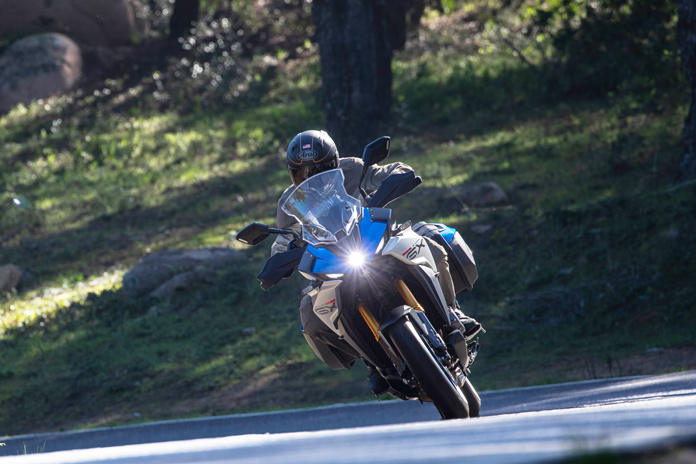
Grip from the Dunlop Roadsport 2 tires seemed only average on some of the tricky road conditions we encountered on our two-day ride. The IMU-based traction control saved my bacon more than once, mediating at different levels of intervention based on the selected ride mode or by manually adjusting TC via intuitive menus. A light on the TFT illuminates when TC is operating, and the system also controls wheelies to varying levels.
Active Duty | 2024 Suzuki GSX-S1000GX+
The balance offered by semi-active suspension deserves high praise. The automatically adjusted damping keeps the GX’s suspension well-controlled at all times. On city streets and boring highways, I set it to Soft mode for a plush ride. When a twisty canyon road presented itself, I toggled to Hard mode for sportbike levels of tautness.
The adaptability of the suspension is a boon to riders who travel on all types of roads. While we appreciate fully adjustable manual suspensions, their settings are always a compromise. More problematic is that most riders don’t (or don’t know how to) properly adjust them to suit their weights and riding styles. With the GX, rear preload is automatically set without tools, and it can be increased to a stiffer setting if you prefer. Damping settings can also be increased or decreased from the presets to suit preferences, and it can all be done by a few button pushes while riding. Magic!
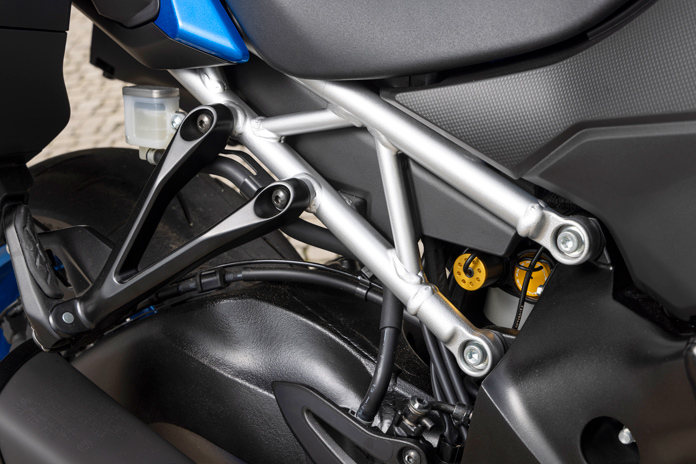
Less magical are a few aspects of the GX that come up a little short. The windscreen is adjustable to three positions but not without unbolting four screws, thwarting on-the-fly adaptability. Tool-less systems have been available on other bikes for more than a decade, so its absence here is annoying.
In the windscreen’s low setting, airflow is smooth up to 70 mph, but higher speeds induce head buffeting. Wind protection improves with the screen in its highest setting, but then it’s stuck there until you bring out the tools again. Digits are sheltered by handguards, but they’re not warmed without ordering heated grips from the accessory catalog. And while I’m feeling disappointed, I’ll note the lack of self-canceling turnsignals.
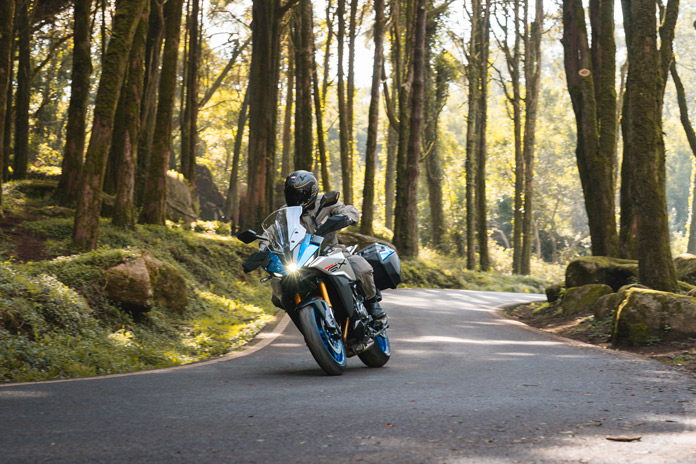
Ride On – And On | 2024 Suzuki GSX-S1000GX+
The idea of a sport crossover may seem odd, but it comes together nicely in the GSX-S1000GX+, which shines brightest by its capabilities to fulfill many roles. It’s docile and manageable in the city, and it’s reasonably comfortable and can carry a bunch of luggage on the highway. Open roads are quickly eaten up by superbike levels of power, and big speeds are shed by a competent set of Brembo front brakes and the security of cornering ABS.
The GX+ might induce sticker shock. Priced at $18,499, it’s the most expensive Suzuki you can buy. Price creep has affected similar Japanese bikes with IMUs and semi-active suspensions: Kawaski’s 567-lb Versys 1000 SE LT+ retails for $18,899, while Yamaha’s less powerful but lighter 492-lb Tracer 9 GT+ has a $16,499 MSRP.
Is the Suzuki $2,000 better than the Yamaha? We’ll report back to you in the springtime when the GX arrives in dealers and we can take them both on a tour for a comparison test. Both are likely contenders for our 2024 Motorcycle of the Year crown.
Check out more new/updated bikes in Rider’s 2024 Motorcycle Buyers Guide
2024 Suzuki GSX-S1000GX+ Specs
- Base Price: $18,499
- Warranty: 1 yr., unltd. miles
- Website: SuzukiCycles.com
ENGINE
- Type: Liquid-cooled, transverse inline-Four, DOHC w/ 4 valves per cyl.
- Displacement: 999cc
- Bore x Stroke: 73.4 x 59.0mm
- Compression Ratio: 12.2:1
- Valve Insp. Interval: 15,000 miles
- Fuel Delivery: EFI w/ throttle-by-wire, 40mm throttle bodies x 4
- Lubrication System: Wet sump, 3.6 qt. cap.
- Transmission: 6-speed, cable-actuated slip/assist wet clutch
- Final Drive: Chain
CHASSIS
- Frame: Twin-spar cast-aluminum frame & swingarm
- Wheelbase: 57.9 in.
- Rake/Trail: 25.5 degrees/3.8 in.
- Seat Height: 33.3 in.
- Suspension, Front: 43mm inverted fork, electronically adj., 5.9 in. travel
- Rear: Single linkage shock, electronically adj., 5.9 in. travel
- Brakes, Front: Dual 310mm floating discs w/ 4-piston radial monoblock calipers & ABS
- Rear: Single 240mm disc w/ 1-piston caliper & ABS
- Wheels, Front: Cast, 3.5 x 17 in.
- Rear: Cast, 6.0 x 17 in.
- Tires, Front: 120/70-ZR17
- Rear: 190/50-ZR17
- Wet Weight: 511 lb (factory claim, without saddlebags)
PERFORMANCE
- Horsepower: 150 hp @ 11,000 rpm (factory claim)
- Torque: 78.2 lb-ft @ 9,250 rpm (factory claim)
- Fuel Capacity: 5.0 gal.
The post 2024 Suzuki GSX-S1000GX+ Review | First Ride appeared first on Rider Magazine.
Source: RiderMagazine.com

